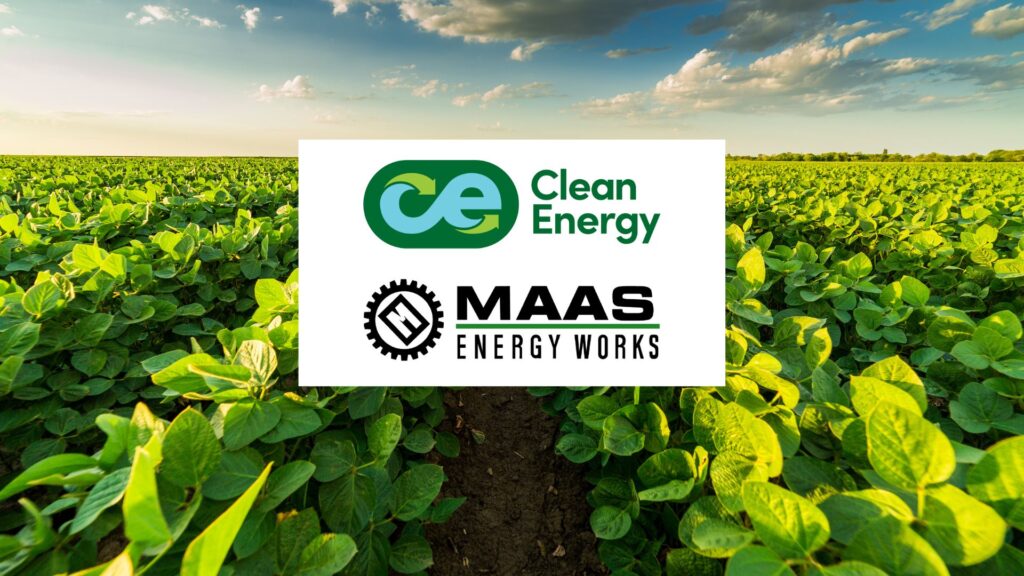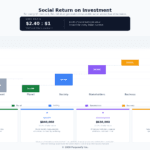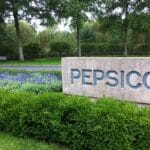Clean Energy and Maas Energy Works to Construct Nine RNG Dairy Facilities in Seven States

Clean Energy Fuels Corp., the largest provider of the cleanest fuel for the transportation market, and Maas Energy Works, the nation’s largest dairy digester developer, announced a new joint development agreement to build nine renewable natural gas (RNG) production facilities at dairy farms across seven states.
This new endeavor will include dairies located in Colorado, South Dakota, Georgia, Florida, Iowa, Nebraska and New Mexico, and will collect the manure from a combined herd size of approximately 35,000 cows preventing the methane emissions from entering the atmosphere.
The nine projects, each subject to finalizing diligence before beginning construction, are expected to be completed in 2026 and will produce up to an estimated 4 million gallons annually of ultra-clean RNG, a negative carbon-intensity transportation fuel which will make its way into Clean Energy’s nationwide network of RNG stations.
Industry pioneer Maas Energy Works has completed over 60 dairy digester projects over the past decade. The team specializes in lagoon cover digesters which involve a large tarp over a manure lagoon to capture the methane emissions. This process makes these facilities significantly less expensive to build and operate compared to tank digesters seen at other RNG plants. Financed by Clean Energy, the nine sites are forecasted to cost approximately $130 million in total.
“This JV brings together expertise from a seasoned RNG developer and producer and Clean Energy’s extensive RNG distribution network and growing RNG customer base. We are excited to continue our long working relationship with the team at Maas Energy Works to get these facilities online and producing pipeline quality RNG to help supply our transportation fleet customers with clean fuel to help them meet their sustainability goals,” said Clay Corbus, senior vice president at Clean Energy.
“This joint venture is clear proof that family farms paired with private businesses are an unstopped force in achieving decarbonization. If the markets for renewable fuels are clear and consistent, then American’s biogas industry will deliver. We will soon be capturing fugitive manure emissions and turning them into carbon-negative truck fuel with our partners at Clean Energy,” said Daryl Maas, CEO of Maas Energy Works.
Agriculture accounts for nearly 10 percent of U.S. GHG emissions and the transportation sector accounts for another 28%, according to the U.S. Environmental Protection Agency. Capturing methane from farm waste lowers these emissions. RNG, produced by that captured methane and used as a transportation fuel, significantly lowers GHG emissions on a lifecycle basis when compared to diesel. This allows RNG to be one of the only fuels to receive a negative carbon-intensity score based on the reduction of emissions at the source and at the vehicle.
Related Article: Broken Promises: G20 Pours Billions into Fossil Fuels Despite Clean Energy Pledges
Forward-Looking Statements
This news release contains forward-looking statements within the meaning of Section 27A of the Securities Act of 1933 and Section 21E of the Securities Exchange Act of 1934 that involve risks, uncertainties and assumptions, including without limitation statements about: the benefits of the joint development agreement including the number, location and herd size of dairy digester projects proposed to be constructed, the timeframe for such construction and the anticipated investment pursuant to the joint development agreement; the amounts and timing of manure expected to be produced; the amounts and timing of natural gas expected to be produced or consumed; the relative cost of construction between lagoon cover digesters and tank digesters; the characteristics and performance of natural gas engines and trucks; the potential development of the consumer market for RNG; the environmental and other benefits of Clean Energy’s fuels; the availability of environmental, tax and other government regulations, programs and incentives; and the impacts of legislative and regulatory developments.
Actual results and the timing of events could differ materially from those anticipated in these forward-looking statements. The forward-looking statements made herein speak only as of the date of this press release and, unless otherwise required by law, Clean Energy undertakes no obligation to publicly update such forward-looking statements to reflect subsequent events or circumstances. Additionally, the reports and other documents Clean Energy files with the SEC (available at www.sec.gov) contain risk factors, which may cause actual results to differ materially from the forward-looking statements contained in this news release.








